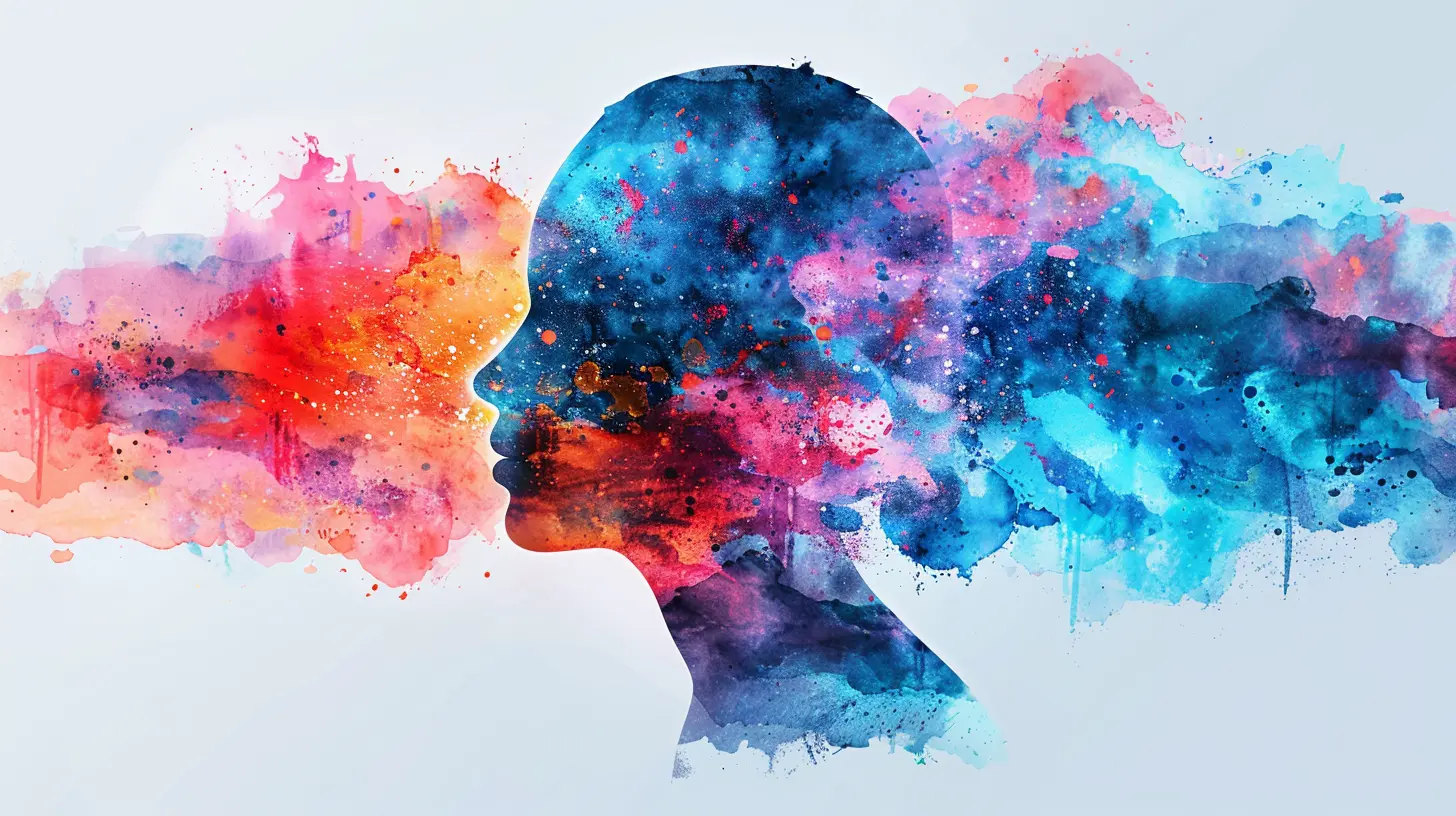How Cultural Backgrounds Influence Cognitive Development
3 January 2025
Cognitive development is the process by which our thinking abilities grow and mature over time. This complex journey starts from birth and continues throughout our lives. But have you ever wondered how much culture plays a role in shaping the way we think, solve problems, and view the world? It turns out, culture is like an artist that paints the canvas of our minds, and where we grow up can have a huge impact on how we develop mentally.
In this article, we’ll explore how cultural backgrounds influence cognitive development, why this matters, and what we can learn from other cultures. So, whether you're interested in psychology, curious about human behavior, or just want to understand how upbringing affects thinking, stick around!

What Is Cognitive Development?
Before we dive into the cultural aspect, let’s define what cognitive development actually means. Cognitive development refers to the changes and growth in our ability to think, reason, and understand the world around us. This includes skills like problem-solving, memory, attention, language, and decision-making.Famed psychologist Jean Piaget was one of the first to study cognitive development, and he believed that children go through distinct stages of mental growth. While his theories are widely accepted, what Piaget didn’t factor in as much was the role of culture. And that’s where things get really interesting!

Culture: The Hidden Sculptor of the Mind
Culture is often described as the shared values, beliefs, norms, and practices of a group of people. It influences everything from the way we communicate to the food we eat, and yes, even the way we think. So, how exactly does culture shape cognitive development? Let’s break it down.1. Language Shapes Thought
You might’ve heard the phrase, "language shapes thought," and it’s more than just a catchy saying—it’s backed by science. Different cultures have different languages, and the structure of a language can impact how people perceive and reason about the world.For example, the Pirahã people of the Amazon have no words for specific numbers, only concepts like "few" or "many." Researchers have found that this affects their ability to count and think about quantities. On the flip side, English and other Western languages tend to break things down into categories and labels, leading to a more analytical way of thinking.
So, in a very real sense, the language we grow up speaking can influence the way we think. It’s like having a different set of cognitive tools based on the words available to us.
2. Cultural Norms and Learning Styles
Each culture has its own set of norms about how children should learn and what is important to learn. In Western cultures, education tends to focus on individual achievement, analytical thinking, and abstract problem-solving. This is why students in countries like the United States often excel in subjects like math, science, and logic-based tasks.But in many Eastern cultures, learning often emphasizes group harmony, respect for elders, and memorization of traditional knowledge. This leads to a different kind of cognitive development, one that’s more holistic and relationship-oriented.
In fact, studies show that children from Eastern cultures are often better at tasks that involve seeing the "big picture," while Western children excel at focusing on specific details. Neither is better or worse—they’re just different ways of thinking, shaped by culture.
3. Social Interaction and Cognitive Growth
Social interaction is another big factor in cognitive development, and different cultures place varying levels of importance on socializing. In some cultures, children are encouraged to interact with a wide variety of people from an early age. This helps them develop advanced social cognition—skills like empathy, perspective-taking, and emotional intelligence.In more individualistic cultures, children might be encouraged to focus on self-reliance and personal achievement. While this fosters independence and critical thinking, it may also lead to less frequent socialization, which can affect the development of social cognition.
4. The Role of Play
Play is often described as "the work of children," and it’s critical for cognitive development. But how children play—and what they play—differs from culture to culture.For instance, in some African and South American communities, play is often intertwined with daily tasks and chores. Children learn by imitation, mimicking adults as they work. This kind of play helps children develop practical, hands-on problem-solving skills and a keen sense of observation.
In contrast, children in Western cultures often engage in more imaginative or structured play, like playing with toys or participating in organized sports. This type of play fosters creativity, rule-following, and strategic thinking.
5. Parental Expectations and Cognitive Outcomes
Let’s not forget about the role of parents! Parental expectations can deeply influence a child’s cognitive development. In some cultures, there’s a strong emphasis on academic excellence from a very young age. Parents in these cultures may invest heavily in their child’s education, and this pressure can lead to earlier cognitive milestones in areas like reading, writing, and arithmetic.On the other hand, in cultures where there’s less emphasis on formal education and more focus on social skills or emotional intelligence, children may develop different cognitive strengths. They might not be the first to solve a math problem, but they could be excellent at navigating social situations or understanding complex emotional dynamics.
6. Cultural Views on Intelligence
Different cultures also have different views on what it means to be "intelligent." In the West, intelligence is often measured by standardized tests and IQ scores, which primarily focus on logical reasoning, verbal skills, and mathematical ability.However, many Indigenous cultures view intelligence in a broader sense. Here, intelligence might include things like knowing how to survive in the wilderness, understanding the cycles of nature, or possessing deep spiritual wisdom. This expanded view of intelligence means that children in these cultures develop cognitive skills that are aligned with their environment and way of life.
7. Technology and Cognitive Development in a Globalized World
And let’s not forget the role of technology! In today’s globalized world, technology is increasingly blending cultures, but it’s also creating new challenges and opportunities for cognitive development.For example, children who grow up with access to the internet and digital devices often develop strong multitasking and information-gathering skills. They’re used to processing vast amounts of information quickly, which can improve cognitive abilities like working memory and attention.
However, there’s also the risk of cognitive overload, where too much screen time can impair focus and deep thinking. In contrast, children in cultures with limited access to technology may develop stronger skills in areas like manual labor, face-to-face communication, and long-term planning. So, the digital divide is not just about access; it's also about how it shapes the mind.

The Importance of Understanding Cultural Influence on Cognitive Development
So, why does all of this matter? Understanding how cultural backgrounds influence cognitive development can help educators, psychologists, and parents better support children’s learning and growth. It reminds us that there isn’t just one way to think or learn, and that diversity in cognitive development is something to be celebrated, not judged.When we recognize the role that culture plays, we can create more inclusive educational systems that value different ways of thinking. We can also become more empathetic, realizing that someone from a different culture might approach problems in ways that are unfamiliar to us, but equally valid.

Conclusion: Culture as a Cognitive Compass
In the grand scheme of things, culture acts as a cognitive compass, guiding the way we think, learn, and solve problems. From language to social norms to parental expectations, every aspect of our cultural background influences our mental development. While it’s easy to assume that everyone thinks the same way, the truth is that our cognitive processes are deeply shaped by the world around us.So, the next time you find yourself wondering why someone approaches a situation differently, remember—it could be their cultural background acting as a silent sculptor, shaping their mind in a way that’s unique but just as effective.
By embracing these differences, we can foster a world where multiple ways of thinking are not only accepted but celebrated.
all images in this post were generated using AI tools
Category:
Cognitive DevelopmentAuthor:

Jenna Richardson
Discussion
rate this article
11 comments
Oscar Baxter
Great insights! Love how culture shapes our thinking and growth!
February 3, 2025 at 5:37 AM

Jenna Richardson
Thank you! I'm glad you found the insights valuable. Culture truly plays a pivotal role in shaping our thoughts and growth.
Joanna McKee
Ah, the brain—a cultural buffet where every experience adds a unique flavor! Who knew that thinking critically could be seasoned with a pinch of salsa or a dash of chai?
January 29, 2025 at 4:48 PM

Jenna Richardson
Absolutely! Our diverse experiences enrich our thinking, blending cultures into a unique cognitive flavor that enhances critical thinking.
Sylvan Oliver
Thank you for this insightful article! The exploration of cultural influences on cognitive development is vital for understanding diverse perspectives in psychology. Looking forward to more!
January 23, 2025 at 4:05 PM

Jenna Richardson
Thank you for your kind words! I'm glad you found the article insightful. Stay tuned for more exploration on this important topic!
Zevros Parker
What a fascinating exploration of how our cultural backgrounds shape our minds! It’s incredible to see how diverse experiences can enhance cognitive development. Celebrating our unique perspectives fosters understanding and growth—truly a beautiful reminder of the richness of human experience!
January 20, 2025 at 5:27 AM

Jenna Richardson
Thank you for your insightful comment! I'm glad you found the exploration of cultural influences on cognitive development compelling. Celebrating our diverse backgrounds is indeed key to fostering understanding and growth.
Alexia Becker
What a fascinating read! It's amazing how our cultural backgrounds shape our minds and perceptions. Celebrating diversity in cognitive development! 🌍✨
January 14, 2025 at 5:23 PM

Jenna Richardson
Thank you! I'm glad you enjoyed it. Celebrating diversity truly enriches our understanding of cognitive development. 🌍✨
Trevor McCray
Fascinating insights, well done!
January 13, 2025 at 5:21 AM

Jenna Richardson
Thank you! I'm glad you found the insights interesting.
Izaak Rios
This article beautifully highlights the vital role of cultural backgrounds in shaping our cognitive growth and understanding.
January 12, 2025 at 5:10 AM

Jenna Richardson
Thank you! I'm glad you found the article insightful. Cultural backgrounds indeed play a crucial role in shaping our cognitive development.
Daniella McNaughton
This article effectively highlights the crucial role cultural backgrounds play in shaping cognitive development. Understanding these influences is essential for fostering inclusive educational practices that cater to diverse learning needs.
January 10, 2025 at 5:50 AM

Jenna Richardson
Thank you for your insightful comment! I completely agree that recognizing cultural influences is vital for developing inclusive educational approaches.
Lacey McAlister
Insightful read on culture's impact on cognition!
January 8, 2025 at 3:24 PM

Jenna Richardson
Thank you! I'm glad you found it insightful. Cultural backgrounds play a crucial role in shaping our cognitive processes.
Lara McKittrick
In the tapestry of thought, culture weaves its threads, shaping minds like rivers, guiding currents of perception. Each background a brushstroke, painting the canvas of cognition.
January 5, 2025 at 5:26 PM

Jenna Richardson
Thank you for your poetic reflection! It beautifully captures how culture intricately shapes our cognitive landscapes.
Parker McCray
This article beautifully highlights the profound impact of cultural backgrounds on cognitive development. It's a reminder of the richness and diversity of human experiences. Embracing these differences can lead to deeper understanding and compassion in our interactions.
January 3, 2025 at 5:19 PM

Jenna Richardson
Thank you for your thoughtful comment! I’m glad you found the article resonates with the importance of embracing cultural diversity in cognitive development.
MORE POSTS

How to Recharge When You Feel Burned Out

Behavioral Psychology in Leadership: Motivating Teams Effectively

The Dark Side of Groupthink: How Consensus Can Lead to Poor Decisions

Recognizing Mania: What Are the Warning Signs?

Bipolar Disorder and Long-Term Treatment: What to Expect

The Impact of Social Exclusion on Mental Health

Group Therapy for Trauma Survivors: A Path to Healing

How to Use Behavioral Psychology to Build Better Relationships